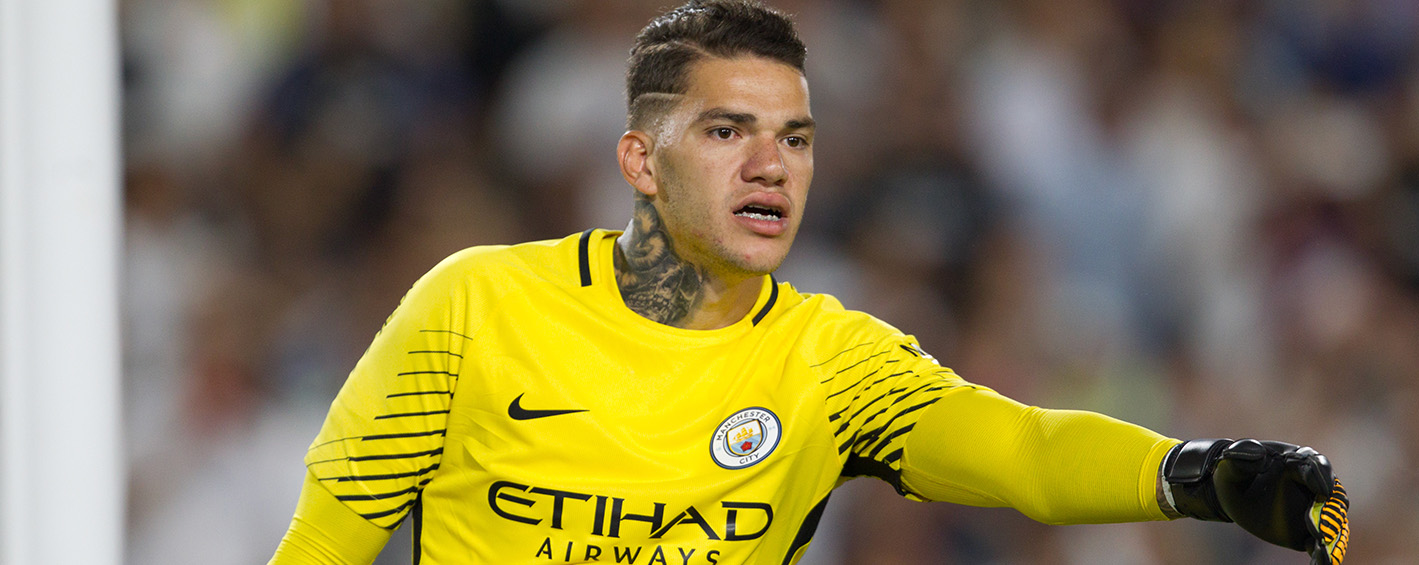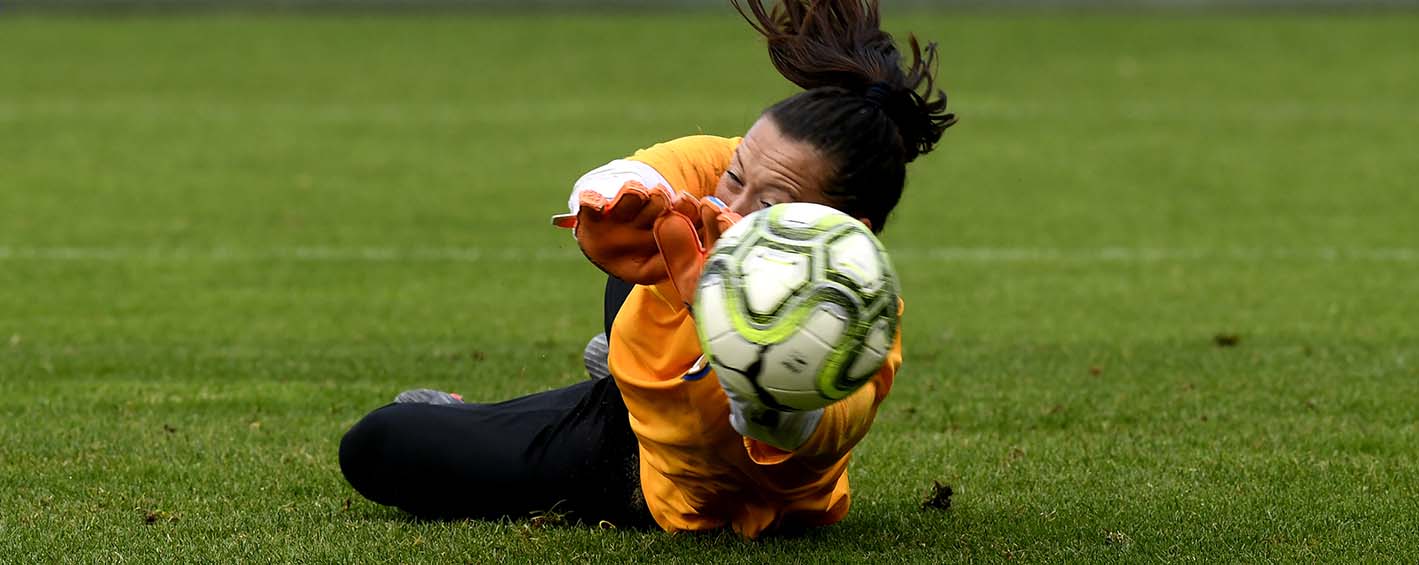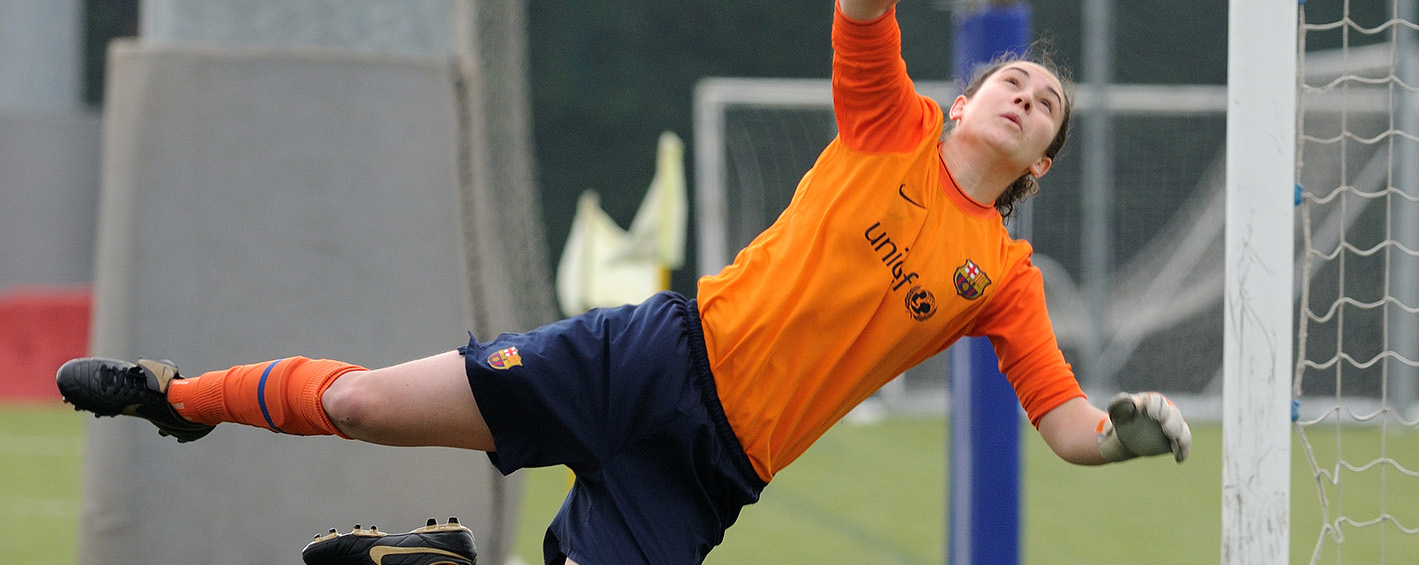Share it
The modern goalkeeper is far more than just a shot stopper – they are key to starting attacks, they help develop passing patterns and are there when defenders are trapped by high pressers. Here are our tactical tips for goalkeepers

Manchester City's Ederson (above) is one of the best goalkeepers in world football. There's no doubt about that. His ability with the ball at his feet is second-to-none. Goalkeepers now play a tactical role at the base of the team that is vital for possession and their technique can alter a team's style of play.
Often team attacks start with the goalkeeper who needs to play accurate short passes and, when team mates are pressed high up the pitch, long passes.
Long passes are now aimed at a specific player rather than being kicked forward to get distance into the opposition half every goalkeeping action has a tactical intention behind it.
So when you are coaching your goalkeeper there are things you need to work on with the rest of the team. Technically players must adopt the correct body shape when the ball is played out from the back to receive the ball and be able to easily play forwards.

The detail of the pass from the goalkeeper should also be correct with the pass going to the back foot with good pace on the ball that the receiver can use to play the ball forwards quickly.
Tactically the build up play should be supported by the goalkeeper with starting positions of the defenders key to play into midfielders and attackers. The distance of the central defenders to where they are receiving the ball and the position of the opposition is vital to keeping possession with having to rush the play.
Watch out for the opposition setting traps for the ball out from the goalkeeper – midfielder rotation during this phase is key.
What can happen with goalkeepers is that central defenders drop to receive rather than go higher up the pitch depending on where the opposition is especially if the goalkick is quick and the opposition is not in a good position to press.
Communication is key: Make sure you communicate clearly and effectively with your teammates. This will help you to coordinate your movements and ensure that everyone is on the same page.

Top Tips For Goalkeepers
- Stay alert: Keep your eyes open and be aware of what's happening on the field. This will help you to anticipate any potential threats and react quickly if necessary.
- Stay calm under pressure: Playing out from the back can be stressful, especially when you're under pressure from opposing players. Stay calm, take your time, and make confident decisions.
- Know when to pass and when to kick: Sometimes it's better to pass the ball to a teammate, while other times it's best to clear it up the field. Knowing when to do each will help you make better decisions.
- Be confident with your feet: Develop your foot skills so you can confidently control the ball and pass it accurately to your teammates.
- Be aware of your positioning: Make sure you're always in a good position to receive a pass from your teammates, and that you're not putting yourself or your team in danger by holding onto the ball for too long.
- Practice, practice, practice: The more you practice playing out from the back, the better you'll get. Work on your foot skills, decision-making, and communication with your teammates during training sessions, and then apply what you've learned during games